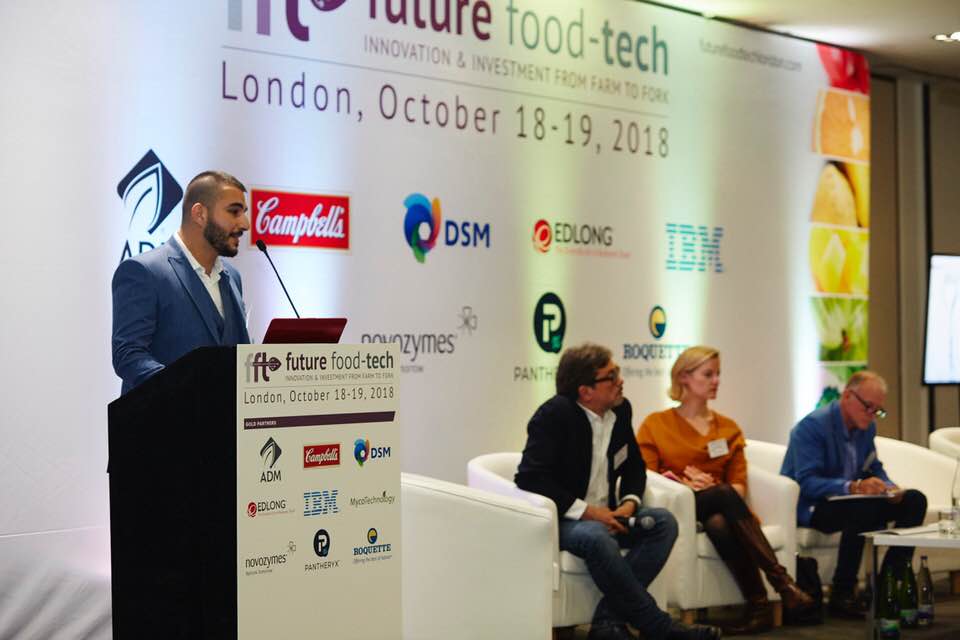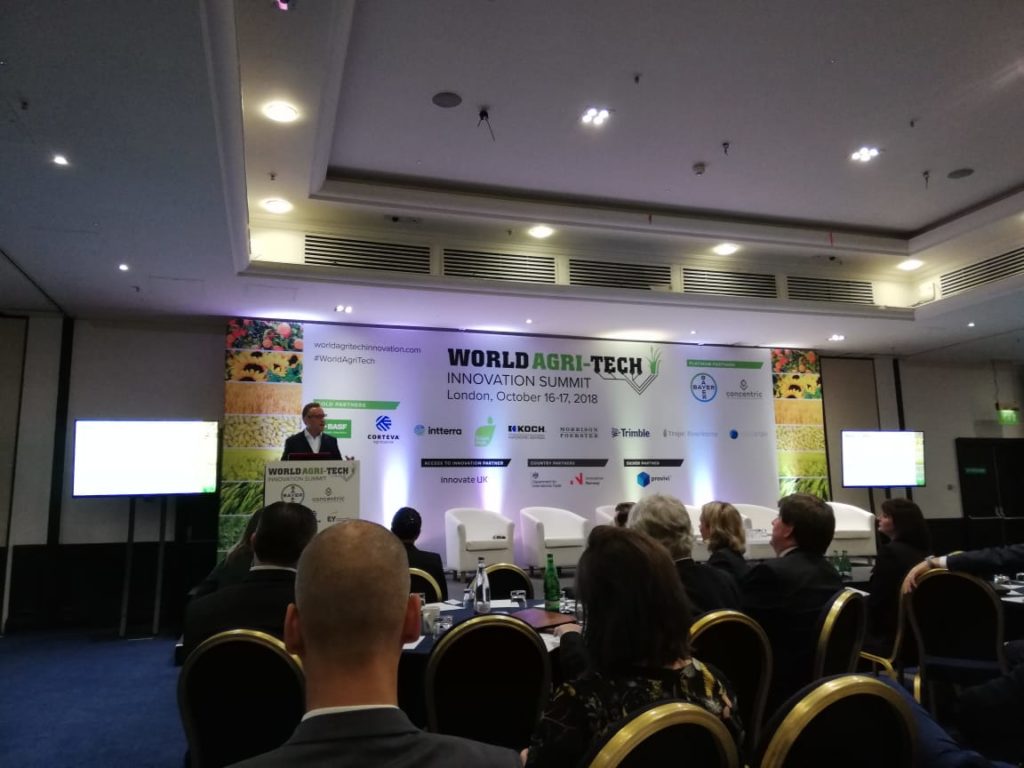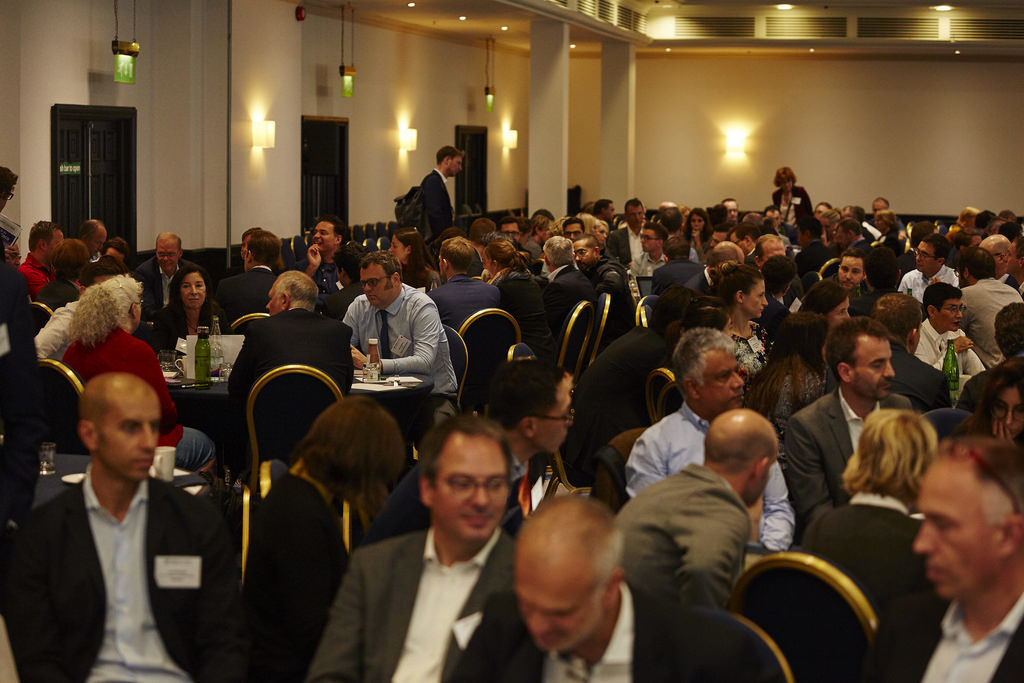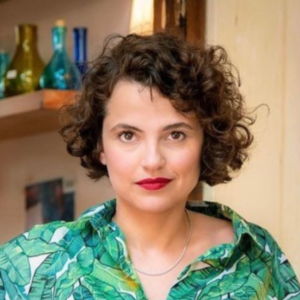
The Agrytech team had an intense and fruitful trip to London to participate in 2 consecutive summits: the World Agri-Tech Innovation Summit and the Future Food-Tech Summit – accompanied by Richardos Lebbos founder of Startchy, an Agrytech startup from Batch 1.
The team had the chance to network, connect and learn about the trends from world players and collaborations that can be done in the sector to enrich the Agrytech program while Startchy was one of 8 startups, chosen from 92 worldwide applicants, who were invited to pitch in the Future Food-Tech Summit.

World Agri-Tech Innovation Summit
World Agri-Tech is held annually in London and San Francisco and is acclaimed as the most international gathering of agribusiness leaders, VC investors and agri-tech innovators. The event was 2 intensive days of learning, connecting and experiencing what the world is looking at in Agri-Tech right now. The Berytech team was engaged in several topics of high-interest: AI in agriculture, indoor farming, animal feed, and health. “We are seeing more and more IoT involved in agriculture decision making, in the process of mechanization and in the process of improving results. Another hot topic was blockchain in agriculture,” states Fadi Naffah, Berytech’s Program Manager of Agrytech.
“The problems of agriculture are different in different parts of the world, but that is an exciting thing for startups who are working on these challenges,” explains Ramy Boujawdeh, Deputy GM of Berytech. “There is a huge difference between the developed countries and the developing countries in terms of needs and concerns. Countries with vast agriculture and farming lands talk about efficiency in production, of managing large plots and using high technology. However, developing countries in Africa and South Asia, similar to Lebanon, are talking about optimizing small plots, improving traceability, improving exportability and reducing middle men. We need to learn how other nations scaled and improved their agriculture practices and how they use new technologies to improve. There is definitely a growing interest in Lebanon from agriculture-related companies, banks and some institutional investors who are looking into agtech as an interesting and very lucrative potential for investment.”

Future Food-Tech Summit
Future Food-Tech is an international innovation and investment summit held annually in London, San Francisco and New York. The summit brings together global food-tech brands, investors and entrepreneurs to accelerate the adoption and commercialization of new products and solutions. The 2018 program focused on plant-based, and cultured proteins, personalized nutrition, ingredient innovation, gene-editing for health and sustainability, and food waste reduction, featuring 60 game-changing speakers and the most exciting start-ups on the market.
The Technology Showcase sessions presented a great opportunity for early to mid-stage food-tech companies to showcase their technology or solution to an audience of global food-businesses, technology integrators, and VC investors. Richardos Lebbos pitched the bio-coating that Startchy has developed to give a long shelf-life to fresh produce. In a 7-minute snapshot, Richardos outlined the solution, highlighting the most innovative aspects of their product and business model.
“The summit is a great event for a startup at our stage,” says Richardos, “we met investors, key stakeholders and big companies. We found out more about their perspective and their needs especially that big companies are now integrating new innovative solutions developed by startups. I found great value in the one-to-one networking sessions that were arranged. I met with the likes of Maersk, Nestle, and Ferrero. All of them need new solutions to minimize food waste and I found out that our solution was a fit for some of them. The feedback I received on the pitch was very constructive. It was a kind of validation of our idea, our product and the value of Startchy in general. This kind of feedback is an important tool to increase the valuation of our startup because we had more evidence that our solution is really needed around the world.”









